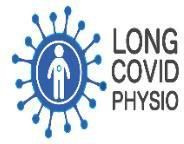
Module 4 of the Covid-19 Inquiry opens this week and will examine the roll out of vaccines, therapeutics and anti-viral treatment across the UK.
The Inquiry is chaired by Baroness Heather Hallett, a former Court of Appeal Judge responsible for making procedural decisions, hearing evidence, and making findings and recommendations. However, her decision to exclude representation from any Long Covid Group has dumbfounded top medical experts and charities across the UK.
The Long Covid Groups, which comprise of the charities Long Covid Kids, Long Covid Physio, Long Covid SOS and Long Covid Support, submitted an application to be recognised as Core Participants in Module 4 in the summer, only to be refused. The Groups have understandably found it extraordinary that the latest module in to the Covid-19 Inquiry has determined that those with Long Covid do not deserve representation in the very module considering pharmaceutical prevention of Covid-19 and the treatment for Covid-19. By not investigating Long Covid in Module 4, the Inquiry is in effect saying that there is no need to investigate pharmaceutical interventions which could prevent and treat Long Covid. The exclusion of the Long Covid Groups dismisses the profound impact that Long Covid has had, and continues to have, on many people in the UK.
"Hard to rationalise"
Professor Danny Altmann, the renowned immunologist and Professor of Immunology at Imperial College London said: "It is hard to rationalise the omission of any voice for those with Long Covid, who continue to pay such a high price. The impact of COVID-19 cannot be counted solely through hospitalisations and deaths, vital as these are. In addition to over 226,000 deaths, the UK is home to some 1.7 million people with Long Covid - variably unable to resume their old lives. Some 700,000 of these cases have been accrued as a calculated risk of allowing Omicron infections to circulate since early 2022.
The impacts are seen throughout society, from the destroyed lives and lost employment, to big-picture, policy questions of the economics of losing so many contributory taxpayers (an estimated 3% of the workforce), or how and when we might be able to supply the additional healthcare provision needed for them. It's hard to envisage a comprehensive or valid analysis of the pandemic with these voices excluded."
Altmann's comments are backed up by the Office of National Statistics which recently announced that there were more than 400,000 people not in employment and not looking for employment, than there were before the pandemic.
Darren Morgan, the Director of Economic Statistics at the ONS, said that the increase was largely in the category that includes post-viral fatigue, "so perhaps Long Covid is having an impact."
Vaccination and therapeutics central to prevention of Long Covid

With Module 4 focussing on vaccinations and therapeutics, Ondine Sherwood, co-founder of Long Covid SOS considers both issues are of central importance to people with Long Covid and has demanded answers:
"Those with Long Covid were abandoned in the decisions around vaccines and our voice should be heard. Having Long Covid means we are proven to have been harmed by COVID-19 infection, in a myriad of ways including devasting loss of ability to live a normal life and contribute to and be part of society.
"Our published research showed that many find symptoms improve after vaccination. We need to know why people with Long Covid were not considered a priority group for vaccines or early intervention with antivirals, despite the significant harm caused to them by the original Covid infection and the risk that reinfection can be severely detrimental to their health. We need these questions answered."
The Inquiry's decision coincides with the decision by the Joint Committee on Vaccination and Immunisation (JCVI) to limit the autumn booster programme to those over 65. Those at Long Covid SOS argue that this limited vaccination rollout will leave a large proportion of the population unprotected against Covid-19 and vulnerable to long-term health problems.
"Whether in terms of patient need, potential for research or impact on health systems, Long Covid, at the very least, meets the criteria for consideration in the realm of Covid vaccines and therapeutics. Therefore, it is a mystery to me, why people with lived experience of Long Covid and relevant experts are not part of module 4 of the Covid enquiry," said Amitava Banerjee, a Trustee Long Covid SOS and Professor of clinical data science and honorary consultant cardiologist at University College London.
Those with the most experience are being marginalised
More questions have come from other charities imploring the government to reveal why those with the most experience of Long Covid are being marginalised.
"A large body of evidence now exists to show that COVID-19 vaccines can prevent the development of some cases of Long Covid and mitigate some symptoms. People with Long Covid have been directly involved in the creation of some of this research, in some cases initiating the research ourselves. Since early in the pandemic we have advocated for research into early therapeutic interventions, including vaccines and antivirals, with the potential to prevent or reduce the burden of Long Covid and for people with Long Covid to be included in the list of vulnerable patients who should be preferentially offered vaccines and boosters. It makes no sense that charities representing people who are experts by experience are being denied the opportunity to discuss this as core participants in Module 4," said Dr Margaret O'Hara, Long Covid Support Founding Trustee and Research Policy Lead.
Young patients still struggling to return to health after infection

The next generation has also been vocal in the condemnation of their exclusion from Module 4. In 2021 Long Covid Kids became the first registered charity advocating for families, children and young people living with Long Covid anywhere in the world. Currently supporting 11,000 families, the charity's vision is to achieve recognition, support and recovery for Long Covid and related illnesses in children and young people. Their omission from Module 4 has left the trustees and CEO livid.
"Children and those with a known history of COVID infection were originally excluded in the vaccine development trials that informed the products we all rely upon today. This is why it is absolutely essential that Module 4 prioritises the voices and vaccination experiences of young patients still struggling to return to health after infection," said Meredith Leston, MRC Scholar of the University of Oxford, public health consultant and Trustee of Long Covid Kids. "With a complete absence of targeted vaccine effectiveness or safety research in patients of this profile, this information will not be available in any other form than the rich testimony our community is willing to offer. It is a mistake to exclude them once again."
The charity's CEO, Sammie McFarland said: "We are livid. Even today, the public remains insufficiently informed about the profound risks associated with Long Covid-a nuanced, life-altering condition that is preventable. The denial of representation to the Long Covid Group in Module 4, which advocates for almost two million adults and children in the UK affected by Long Covid, perpetuates the enduring inequalities faced by countless families."
Jeremy Rossman, a Senior Lecturer in Virology at the University of Kent and Chairman of Long Covid Kids said that despite the disappointment of not being able to represent the voices of the children and families affected by Long Covid in this important module, the charity would continue to tell their story in Modules 2 and 3 and though its independent advocacy work.
Jane Ryan, a partner at the law firm Bhatt Murphy which specialises in defending civil liberties and represented the Long Covid Group in Modules 2 and 3 of the Covid-19 Inquiry said: "In my view the decision shows the massive inequality of arms between ordinary members of the public seeking accountability for long term damage to their health from Covid-19 and the Government. Unlike Rishi Sunak and the Cabinet Office my clients do not have the financial resources to take the Covid-19 Inquiry to Court to review the decision. It is imperative that the Covid-19 Inquiry properly considers through out every aspect of its investigation the long-term harm done by Covid-19. To avoid and minimise Long Covid is an error the Government made throughout the pandemic resulting in devastating long term harm to the health of thousands of people in the UK. Those shameful mistakes should not be repeated by the Inquiry: Long Covid should be central to the investigation throughout."
The Long Covid Groups will be watching Module 4 of the Inquiry from afar but will not be satisfied unless Long Covid is at the heart of the Inquiry's investigations, including into the impact of vaccination and anti-virals on Long Covid.
In relation to Module 2, which is considering core political and administrative decision making, starting on 3 October 2023 Ryan has revealed the six key questions that the Long Covid Groups expect the Inquiry to probe:
1. What is the Inquiry's understanding of what Long Covid is?
2. What was the role of patient advocacy in the recognition and response to Long Covid?
3. Has there been measurable data collection and modelling in to Long Covid?
4. Was the prevalence and the risk of Long Covid taken into account when decisions were adopted such as the imposition and then easing of non- pharmaceutical interventions?
5. Were the public warned about the risk of developing Long Covid and take the disease into account in public health communications?
6. There are now nearly two million people with Long Covid. Was this avoidable?
© 2025 ScienceTimes.com All rights reserved. Do not reproduce without permission. The window to the world of Science Times.












